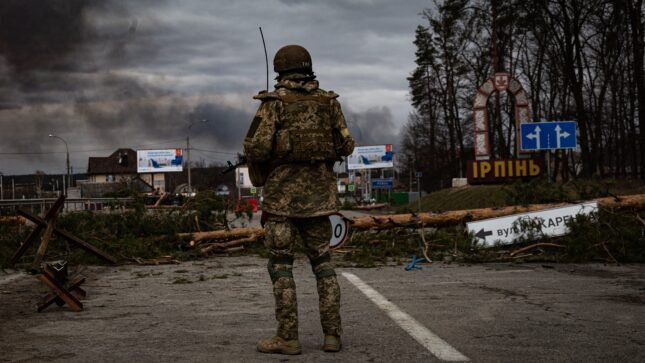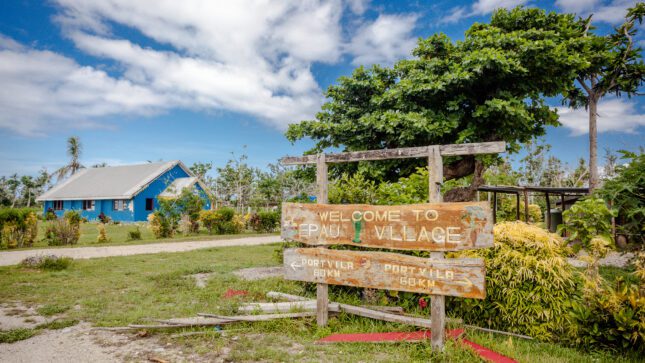-
ECSP Weekly Watch | January 20 — 24
›
A window into what we’re reading at the Wilson Center’s Environmental Change and Security Program
Placing Water at the Heart of Climate Action (Relief Web/Netherlands Red Cross)
It may be true that water is life. But equally true is that roughly 90% of natural disasters—and the havoc they wreak—are water-related. A recognition that these disasters are intensifying in a warming world has led the Netherlands Red Cross to create Water at the Heart of Climate Action (WHCA): a program to tackle the intertwined crises of water-related disasters and climate change.
-
ECSP Weekly Watch | January 13 – 17
›
A window into what we’re reading at the Wilson Center’s Environmental Change and Security Program
The Success of Community-based Conservation in Africa (Yale 360)
Across Africa, herders once seen as threats to wildlife have now become vital conservationists. In a transformative shift from “fortress conservation” to community stewardship, they are protecting iconic species like elephants and lions as they coexist with their livestock.
-
Classic Geopolitics and Today’s Nexus of Conflict and Climate
›
In recent weeks, users of the social network Bluesky were able to watch a compelling video featuring Jessica Newberry Le Vey—a Climate Change and Health Policy Fellow at Imperial College’s Climate Cares Centre. The video begins with Le Vey’s direct-to-camera assertion that the climate crisis is a health crisis affecting people around the world. Then Le Vey’s image disappears—yet we hear her (or someone who sounds eerily like her) speak over a compendium of combat footage that includes video of ATACAM missiles being fired and larger strategic missiles on the move. Climate is important, declares the speaker, but there are more serious problems that threaten our security.
-
ECSP Weekly Watch | January 6 – 10
›
A window into what we’re reading at the Wilson Center’s Environmental Change and Security Program
Room for Justice in Vietnam’s Energy Transition? (The Diplomat)
Vietnam’s crackdown on environmental leaders such as Hoàng Thị Minh Hồng on disputed charges raises significant concerns about human rights, transparency, and civil society’s role in its energy transition. These arrests have garnered international attention, but Vietnam’s government argues that they had nothing to do with environmental work. And while Hoàng and other activists have been released, their work remains curtailed. The message is clear: you’re not welcome here.
-
ECSP Weekly Watch | December 16 – 20
›
A window into what we’re reading at the Wilson Center’s Environmental Change and Security Program
Humanitarians Highlight the Climate-Conflict Nexus (The New Humanitarian)
Climate change’s disproportionate impacts on vulnerable populations exacerbate socioeconomic inequalities and conflict, particularly during natural disasters. This vexed connection has led humanitarians and peacebuilders increasingly to address climate and conflict challenges together in order to provide integrated relief, recovery, and aid.
-
ECSP Weekly Watch | December 9 – 13
›
A window into what we’re reading at the Wilson Center’s Environmental Change and Security Program
Mekong River Development Faces Public Outcry (Mongabay)
The Mekong River flows through China, Myanmar, Laos, Thailand, Cambodia, and Vietnam—and a new development on this waterway near the downstream Thailand-Laos border has triggered protests in Thailand. The Pak Beng hydropower development is a joint project of China Datang Overseas Investment and Thailand-based Gulf Energy Development which is estimated to generate 912 megawatts of power to be sold to Thailand’s state energy company.
-
Guam and Vanuatu: Different Paths from Environmental Change to Human Insecurity
›
Our present ecocrisis drives human insecurity. Single weather events killed hundreds in 2024, even in wealthy countries such as the United States or Spain. And beyond that staggering toll in human lives lurk staggering amounts of money required to repair and rebuild. In the United States alone, inflation-adjusted disaster-attributable costs have reached on average $153 billion each year. These factors and others make global environmental change a severe risk to human security.
-
The 2024 Montreal Climate Security Summit: Four Takeaways
›
“I think we need to approach climate security completely differently,” said Sharon Burke, Founder and President of Ecospherics and Wilson Center Global Fellow, at the recent 2024 Montreal Climate Security Summit. “It’s not just that climate change is an opportunity cost in combat power, or that it’s effecting our bases and operating environment, or that it is an accelerant to instability. It is itself the threat.”
Showing posts from category environmental security.








